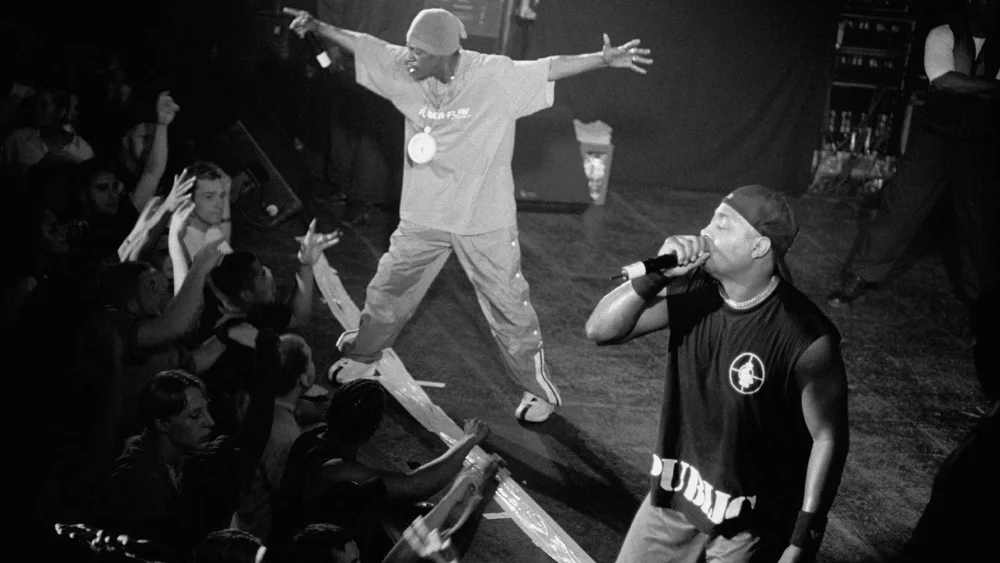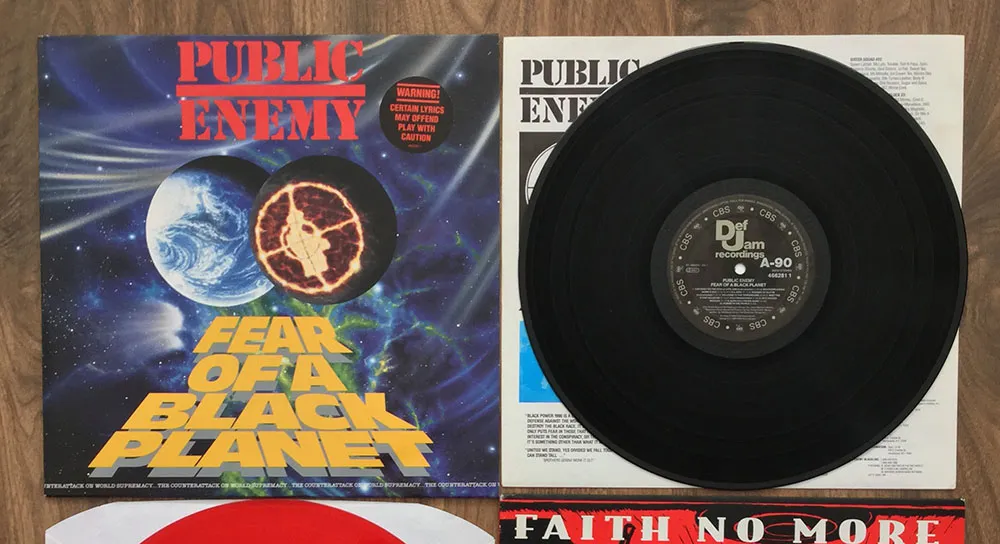
I dust down and revisit my favourite Hip Hop album. Music that bridged rock, soul and civil rights.
It’s a work of art, an abstract expressionist painting in sound waves. It’s a Rock album and a Soul album. It all swings like a gigantic pendulum. FOABP is not a dance record. However, the beats often evoke the cool swagger of Philadelphia soul. Public Enemy expertly channel classic R&B through the lens of civil rights. It’s a kind of audio documentary too.
Released in 1990, it was the first Hip Hop album I had bought. At this point of my life I was consuming more subversive strains of hard rock. Particularly bands like Slayer, Faith No More and Rage Against The Machine. Public Enemy straddled the clear boundaries between R&B and Metal. For me there has never been any boundaries in music.
Music fans are tribal, in a fashion sense, but our listening is often hugely diverse.

Hip Hop wasn’t on my radar to begin with. The Sugarhill Gang was for me, aged 10, a kind of cool novelty record. Great to get people dancing at our house parties. I’ve only really just begun to understand the origins of Hip Hop in the USA. Partly thanks to the brilliant and exhaustive Steve Greenberg podcast Speed Of Sound. Back in the late 70s, I listened to a lot of black music, particularly UK mixed ethnicity groups like The Specials. Along with other dance-orientated pop music of the era, it all feeds into my own influences now.
Fear Of A Black Planet is a master class in production.
Sampling in the 90s was still cut with tape, so this album was a triumph. Of course audio sampling goes right back to the 1960s. The Ringo Starr drum loop on The Beatles trippy Tomorrow Never Know’s might have invented Trip Hop, a 90s form of psychedelic rap. Public Enemy were also DIY musicians. Recording and editing for FOABP is handled by The Bomb Squad. According to Chuck D, this album was “shooting for Sgt. Pepper”.
I love how they invented new roles in sampling to create “feel” and spontaneity. The editing and mixing is “jammed” and improvisational. Public Enemy were the first artists to break from the origins of Hip Hop in a club/dance setting. MCs originally rapped over and “scratched” vinyl dance records.
There are also parallels with Reggae Sound Systems parties pre-Hip Hop. In fact, audio speakers were generally considered a declaration of coolness. As a teenager I carried a portable cassette player around with me everywhere. Playing loud music in public was a kind of social media for the time, at least if you were under the age of 30.

My original 1990 (UK) purchase of Fear Of A Black Planet (Def Jam Recordings)
The real centrepiece of FOABP is the vocal dexterity of Flavor Flav and Chuck D. The Lennon and McCartney of rap paint a perfect contrast between surrealism and shocking pragmatism. The words are also syncopated and “rapped” around the swinging beats. The voice is both the lead and rhythm instrument. Even when presenting a radio show, Chuck D has a rhythm to his normal speaking voice.
Fight The Powers That Be
I feel less qualified to explore any of the perceived controversies that arose over the lyrical content of FOABP. Art needs to take risks in order to tear down the deeper prejudices that still exists today. Subversion and satire are healthy in popular music. Though music is certainly not as powerful as it once was in shining a spotlight on social injustice. Art should be free of constraints and allowed imperfection. In some ways, popular music was the conversation starter at the gig or bar with your friends. The records and artists provided the talking points.
In the late 80s there was apparent solidarity between Hip Hop and Metal groups such as Anthrax, who recorded a version of PE’s Bring The Noise. I fully embraced this connection. Others may not have. Perhaps it was just a cash-in on Hip Hop’s success. The Aerosmith/Run DMC collaboration was pure pop. Public Enemy were a different proposition and helped shape my own music.

Zooming out from Fear Of A Black Planet, and into the era of 1960s civil rights is the 2021 documentary film by Ahmir “Questlove” Thompson Summer Of Soul. Billed as the Harlem Culture Festival, this concert took place in 1969, my own birth year. It features a glittering array of virtuosic black artists including Stevie Wonder, Sly & The Family Stone and Nina Simone. To name only a few. All heroic figures in music. The 1969 Woodstock festival starred Sly Stone, Richie Havens and Jimi Hendrix.
Turn on and tune in…
- Fear Of A Black Planet by Public Enemy (1990) is available wherever you get your music, including the Deluxe Edition with bonus material.
- Check out “And You Don’t Stop”, a Hip Hop radio show hosted by Chuck D, which you can stream on Mixcloud.
- Summer Of Soul is on Hulu and Disney+ (UK), so grab your favourite tipple and enjoy some of the most incredible performances you’ll ever see!